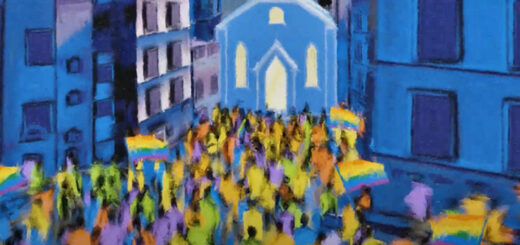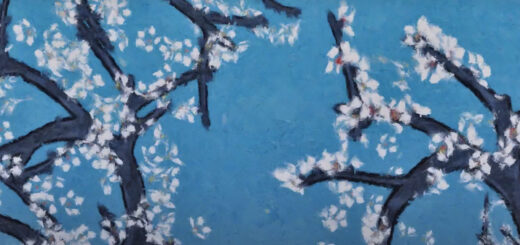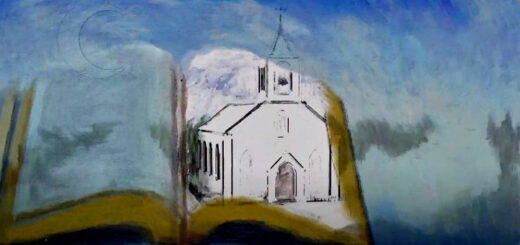Brendan Fay. A Catholic, gay and director. My “Taking a Chance on God”
 Lidia Borghi’s interview with director Brendan Fay, 17 October 2012
Lidia Borghi’s interview with director Brendan Fay, 17 October 2012
“Taking a Chance on God” is a documentary whose director Brenday Fay focuses on American gay theologian John McNeill’s life and pastoral activity.
Born eighty-seven years ago, in Buffalo (New York State), McNeill is a reference point for the LGBT Community in the USA thanks to his work as a psychotherapist and councelor, which is the reason why, in 1988, he was dismissed from the Jesuit order by an official letter that was signed by the then head of the Congregation for the Doctrine of Faith, Joseph Ratzinger.
When Brendan Fay went to the States, he was 20 and AIDS epidemic had just spread out. He met John McNeill through Dignity, a Community for LGBT people, which the churchman co-founded in 1972, in St.Francis Xavier’s parish in Greenwich Village. When Brendan began to attend the group regularly, the priest had already started his ministry to reconcile the Catholic faith and homosexual love.
Their great friendship was so fruitful that Brendan wanted to achieve his idea about conveying McNeill’s remarkable work through images. The filming of “Taking a Chance on God” appeared for the first time in 2006 and involved witnesses that agreed to tell priest’s life without hesitancy.
 After many years your work as film director has tightly intermingled with your activism for LGBT civil rights. You have lectured in schools, parishes and several communities. You were even arrested, during a civil protest in New York. Please tell me about your many activities.
After many years your work as film director has tightly intermingled with your activism for LGBT civil rights. You have lectured in schools, parishes and several communities. You were even arrested, during a civil protest in New York. Please tell me about your many activities.
I am often introduced as an activist and film maker. Both aspects are energized by a spirituality from my Catholic background. For years I was afraid of people finding out I was gay. Now some find it odd when I am introduced as a gay man who is Catholic!
Growing up in the 1960s in Athy, Ireland I was inspired by the nuns in the local convent. My father worked in the Asbestos factory while my mother was doing her best to raise the seven of us. While other lads were at football I was hanging out at the local St Michael’s convent where Sisters of Mercy ran a refuge for alcoholics & welcomed the homeless with soup and sandwiches.
Their simple gestures of kindness and compassion deeply impressed me. I grew up with ancient Catholic traditions as well as the spirit of Vatican 2 with openness to renewal. The late 70s and early 80s era in Ireland were marked by hope for social change. Prayer was connected with social activism for human rights in Central America and South Africa and a commitment to bettering our world Faith is something visible as much as a matter of the heart. It was a life that easily blended prayer and protest.
In Ireland & the US I studied liberation theology & youth ministry. To be Catholic means more than going to mass on sunday. It a also means a committment to justice and compassion. The Church that shape me was like a school of activism! However when it came to sexuality that was a very different story… There was little justice or compassion!
Arriving in New York I encountered the post Stonewall activism that energized the gay community to advance equality and human rights. I found my way to Dignity, the group for LGBT Catholics co founded by Fr. John McNeill. 300 gathered weekly in St Francis Xavier Church. ( that is until expelled in March 1987). This was the 80s. I witnessed much soul searching and wrestling in the gay community during the AIDS crisis as they faced prejudice, discrimination and death. The lgbt community has something to say to society & to the Church of course. I was a teacher in Catholic schools for 5 years. My life dramatically changed when I “came out” publically on 5th Ave at the St Patrick’s parade in New York City.
After this experience I began the film series called “From Silence to Speech”, a series of films about being Irish and Gay in America. This theme is a huge question for me… as I often ask myself what am I most afraid to speak up about.
Film making creates a space to reflect & to share stories. My work continues to be very influenced by Irish traditions of story telling, Catholic traditions of compassion & social justice and my experience of activism within the New York LGBT community. We live in a time of soul searching for LGBT catholics. We asking questions: who are we, why we stay and what of the future. As LGBT Catholics we are asking what is life and love asking of us. Our first challenge I believe is to “come out “ as best we can. Then to stand up and speak up, to tell our stories and work for equality.
These days while working on new projects I present films and speak on spirituality, sexuality and justice at churches, colleges and retreats. I have testified in Washington DC and in New York on immigration rights and marriage equality and been arrested in defense of civil and human rights.
How do you live, as gay believer, the tormented relationship of lesbian/gay people and of their families with the American Catholic Church?
Pope Benedict and bishops need to listen/dialogue with lesbian & gay couples and families… Growing up catholic in Ireland of the 60s & 70’s I never imagined being open & out as a gay man and certainly never imagined getting married in a catholic ceremony with our priest community which I did in 2003. When it came to sexuality I was crippled with shame & fear. I believe that some day the Church will ask forgiveness of the LGBT community.
In the US Catholic Conferences at State (State marriage law) & Federal (current hearings on BI National couples & Family Unification) levels are opposing legislation to affirm and extend legal rights to same sex couples.
Coming out of the closet for the gay or lesbian person usually means coming out of the Church,. This is not terribly surprising given the official teaching say of the Catholic Church which speaks of homosexuality in terms of intrinsic evil & objective disorder. The teaching of the Church on homosexuality and marriage in general is slowly evolving.
This is a time for conversation and conversion for all, for a change of heart and mind on the issue of love between persons of the same sex. We live in a moment of hope and LGBT catholics are welcoming this unique opportunity to come out and live more openly and more honestly in our Church and society. There are challenges of fear and discrimination and prejudice. Same sex couples are asking for equal rights in civil society, equal embrace in the heart of our church and dialogue on same sex marriage. My experience of Catholic faith has been influenced inspired by the compassionate witness of those working for good, for justice and for peace. Dorothy Day founder of the Catholic Worker movement in New York said “No one has a right to sit down and feel helpless, there’s too much to do.”
Do you think that the American bishops approach the LGBT world in a better way?
Among the bishops in the US and thoughout the world there have been bishops who have been courageously outspoken on the sin of prejudice and discrimination experienced by lgbt persons.
I often quote from the letter of the U.S. Bishops, To Live In Christ Jesus, 1976 “Some persons find themselves through no fault of their own to have a homosexual orientation…. They have a right to respect, friendship and justice. They should have an active role in the Christian community”.
And in a pastoral letter to parents Always Our Children (USCC, 1997/98 the bishops write “You [parent of a homosexual person] may still insist: “You are always my child; nothing can ever change that. You are also a child of God, gifted and called for a purpose in God’s design.”
However the fact is most bishops have been outspoken against our efforts for equal rights. The irony is some of the bishops themselves are gay. The hope for our Catholic Church is that LGBT communites are speaking up and change is happening.
I see the unique gifts the gay community for the whole Church – A new language about the gift of sexuality – a cause for gratitude not shame or fear.
We are people of hope. We are Catholic. We are gay. The church is also our family. Ours are stories of love and faith. Being gay is not chosen but something we arrive at, a human reality we discover just like being left handed and being short. (in my case!).
Our sexual orientation is neither chosen nor changeable – is a part of our created humanity. I look forward, hope work and pray for the day when LGBT persons will not need to leave the Church – but find a welcome and honored the gifts lives and loves treasured and blessed. What do we want open doors – open hearts and open minds.
From a cinematographic point of view you directed some civil rights films which were screened at worldwide festivals. How did you meet J J McNeill?
I coordinated a documentary film series about being Irish and gay in America. Some of my filmwork have been screened at many festivals, including the Cork International Film Festival (Remembering Robert: Director), the Tribeca Film Festival (Saint of 9/11: Co-producer & European Field Producer), The NY Fleadh Film Festival (A Month’s Mind: Director) and the Galway Film Festival (Edie and Thea: Associate Producer). His work has also been broadcast on PBS and MNN New York. The current film Taking a Chance on God is making the rounds of festivals world wide including Durban, South Africa, Frameline San francisco, Woodstock International Film Festival, QFest Philadelphia. The screening in Florence on October 25 will be the European Premiere.
When Tom & I married in May 2003 RTE Irish Television did a documentary on our story as a Catholic couple.
How did you meet Fr. John McNeill?
I first met John McNeill through reading about him and his writings while studying theology in St Patrick’s College Maynooth Ireland. Then shortly after I emigrated to New York in the mid 1980s I joined the group Dignity NY a community for gay and lesbian Catholics which he co founded in 1972. The group met every sat night for Mass in St. Francis Xavier parish in Greenwich Village, New York. John inspired a movement that bridged the divide between sex and the sacred. At last here was a place where we could be both gay and Catholic. So I came to John through the movement he helped form.
I interviewed John for a series of short films on “Being Irish and Gay in America”and also for the documentary on Fr Mychal Judge (Saint of 9-11) Afterwards I instinctly felt the urge to unwrap even more the uncommon life of this humble priest from Buffalo, who was a POW in Nazi Germany, a voice for peace during the Vietnam war and a pioneer for gay liberation. I found John to be an honest priest and brave man willing to risk so much. As another Jesuit priest Robert Carter told me John was saying it was not only ok to be gay but it was good to gay and he was saying this at a time when the medical establishment defined us as defined as sick, the law defined us as criminals and the Church denounced us as sinners.
John McNeill was the pioneer of liberation whose book The Church and the Homosexual became the “bible” for the gay and lesbian community and the manifesto that inspired a theological Stonewall movement in the Christian Churches. He is now 87 and it has been a real joy to sit with him in Film Festivals and for John to be acknowledged for the gift of his life’s work.
The film is very much a story of the heart of John McNeill’s love for his Church, his Jesuit family, the LGBT community and his beloved Charlie.
Please tell me about the making of Taking a Chance on God. Was it difficult to produce such a documentary film?
There have been challenges along the way. I needed access to archives, financial support and people on all sides willing to tell their stories of John McNeill. The film has been both cheered and denounced. There were some in the Church who were reluctant or afraid to be interviewed. Others decided not to cooperate. On the other hand there is a story to be told of activism on behalf of LGBT persons within the Catholic Church. Besides there were some in the LGBT community who perhaps with understandable suspicion raised eyebrows and rolled eyes in doubt but were finally moved by the story of this Catholic priest who was an outspoken advocate for human rights.
The film is a collaborative effort by many people who supported the work over many years of production with prayer, with stories and much needed funds. Since the general release in 2012 the film had received enthusiastic audience response. Festival audiences from Durban, South Africa to Frameline San Francisco have been moved to tears and laughter & applaud the film.
As a film maker I simply stand at the crossroads and tell the stories. Taking a Chance on God is a story to open minds, hearts and doors for LGBT persons in the Catholic Church and society. I hope the film can help keep that movement for change alive. Taking A Chance on God is a story of the heart; the story of John McNeill’s love for his Church, his gay community, his Jesuit brothers, and his beloved Charlie. Taking A Chance on God gives a rare look into the heart of one man’s journey, as he negotiates his life as a Catholic priest and as a gay man. The film of John’s struggle with his own sexuality is a plea for a more honest embrace and dialogue of our huamn reality for all of us in ther Church – bishops, priests, sisters laity. Our sexual orientations are part of humanity.
The film also includes footage of John and Charlie as they cross the border with the Civil Marriage Trail Project to Canada to be legally married by Judge Harvey Browstone in September 2008.
John McNeill is an inspiring model of courage, sacrifice, and perseverance for anyone seeking to bring about change regarding LGBT issues, particularly within religious institutions. He is a key figure within the entire modern LGBT rights movement that began with the Stonewall uprising of 1969 and now finds itself poised on the edge of full civil equality in the United States and other countries.
Indeed John himself as a gay and as a priest and theologian experienced great opposition. On April 14, 1987, Jesuit superiors arrived at John’s apartment in New York City. In English and Latin, they read to him the Vatican “Decree of Expulsion”. John McNeill, a Jesuit priest of forty years’ standing, was expelled from his religious community because of disobedience to Vatican authorities, and more specifically for questioning Roman Catholic teaching on homosexuality. He was dismissed, finally, in the words of the decree, because of his “pertinacious disobedience”. Profoundly hurt, but without bitterness, John nevertheless continued his ministry – as a therapist, theologian and retreat director. Whether on the road, by skype or from his blog, John continues to be that same voice today, proclaiming same-sex love as holy, and encouraging lesbian, gay, bisexual and transgender persons around the world.
Finally, can you tell me something about the people who gave their contributions, together with you, to make Taking a Chance on God?
Taking A Chance On God was produced thanks to the generous community fundraisers held across the country. People held fundraisers in their homes There were donations from activists, family & friends in New York and In Ireland. Support was received from fellow Jesuits and other members of religious communities. The steady flow of donation kept the film going through the various stages of production. At first we did not receive support from foundations and so I turned to communities influenced by John’s ministry and witness. So the film really is a collaborative effort involving hundreds of people.
I able to work in film production as I am blessed to be married to Tom Moulton a marvelous and generous man who supports me in this creative work of film making.
After years of production work it is a marvelous joy to sit with John & Charlie in crowded theaters and his story on the screen and watch the response of audiences who laugh and have been moced to tears and laughter. We continue to have panel discusssions. The film challenges & provoke new conversations and I pray help change hearts and minds.
The need for funds is ongoing and we need support in getting the film to communites who need it
Taking A Chance On God is currently being translated into Polish, French, Italian and Spanish and distributed to festivals, colleges and Church communites worldwide.
The filmmakers of Taking A Chance on God
Brendan Fay: Director, Writer and Producer
Ilene Cutler: Producer and Editor
Dan Messina: Editor and Co-Writer
Peter Wetzler: Composer






